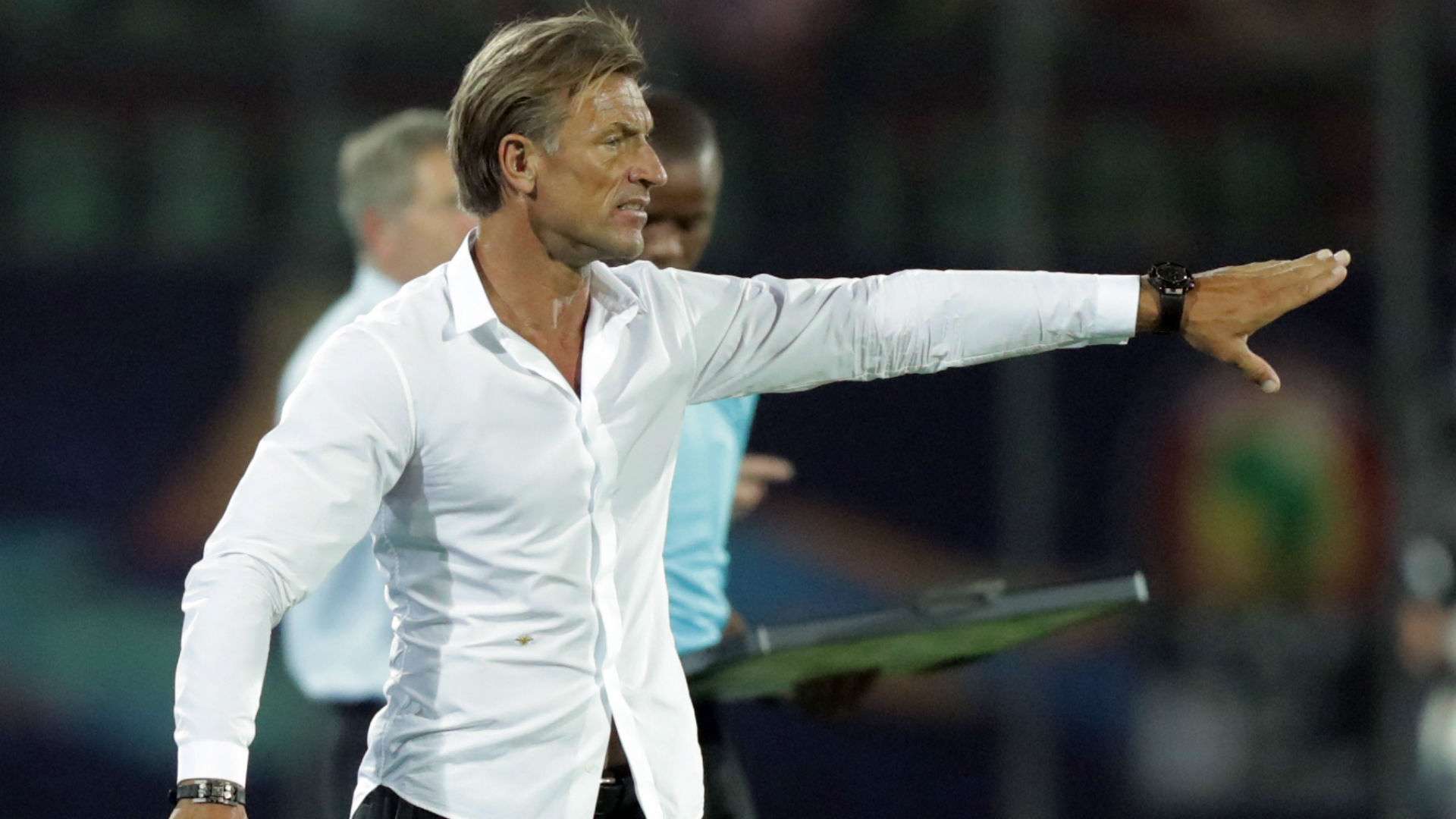Since Herve Renard took the Morocco job in February 2016, it’s been—largely—a match made in heaven, and one that had appeared destined for the Africa Cup of Nations title.
The suave, urbane Renard had appeared the perfect fit for the Atlas Lions’ cosmopolitan, technically proficient, yet gritty and tenacious bunch of players, and even though they fell at the quarter-finals of the 2015 Afcon, it was clear that team and coach were well suited.

The context worked too; the photogenic, stylish Renard was an ideal subject for Morocco’s hungry and probing media machine, which draws in French-style gossip and fashion alongside the sporting analysis.
Renard and his wife Viviane Dieye—the widow of former Senegal head coach Bruno Metsu— graced the front cover of the glossy Hola! Maroc lifestyle magazine in April 2018, welcoming journalists into his Senegalese pad to talk of his love for Africa, and how ‘free’ he feels working on the continent.
On the field, the results started rolling in and the achievements came one by one.
After missing the 2015 Nations Cup, they qualified for the 2017 tournament, before going onto reach the knockouts—escaping from the Group of Death—for the first time since 2004.
They qualified for the 2018 World Cup ahead of Renard’s former charges the Ivory Coast, reaching the tournament for the first time in 20 years.
It was one of the Frenchman’s crowning achievements, just behind his Afcon successes with Zambia in 2012 and the Elephants three years later.
 Getty
Getty
While the Atlas Lions’ fortunes perhaps turned last year—they were eliminated from the World Cup at the group stage, although were unfortunate not to have taken more than one point from matches against Iran, Portugal and Spain—they still won many admirers in Russia for their intense style, their technical quality and their advanced, progressive strategy.
Those showings in Russia were among the best we’d seen from an African side on the grandest stage, and it ought to have come as little surprise, even if the team have been hamstrung by the absence of a quality centre-forward.
As well as boasting talent at clubs such as Real Madrid, Ajax Amsterdam, Juventus, Galatasaray, Fenerbahce and Schalke 04, the Moroccan Football Federation are also a modern, progressive, professionally-run operation who could reasonably be considered the pinnacle within an African context.
The stars appeared to be aligning for Renard to bring home the continental crown for the first time in 15 years, particularly after the tournament was shifted from Cameroon to more familiar North African climes.
The home-based Atlas Lions’ success at the 2018 African Nations Championship, and Wydad Casablanca’s recent performances in Caf competitions—they’ve reached two Champions League finals in the last three years, and may yet win the controversial 2019 edition—appeared mere precursors to Morocco’s triumphant Afcon campaign.
However, those hopes, dreams, and daresay, expectations, turned to dust on Friday, as the Lions’ procession to the title was ended by a limited, one-dimensional Benin side.
At the time of writing, Renard is still in his job, he’s under contract until 2022, although regardless of the outcome of Morocco’s Nations Cup campaign, it had appeared likely he’d leave at the tournament’s conclusion.
Now, it may be a case of whether he jumps or is pushed, with rumours of a move to Saudi Arabia swirling.
Reaction back in Morocco has been split in the reasons for the side’s failure to demonstrate their true qualities in Egypt.
 Gettyimages
Gettyimages
While they qualified from the group stage with three wins—and without conceding a single goal—they only downed Namibia and South Africa due to single goals in the dying stages of both matches.
While they showed something closer to their true ability to defeat the Ivory Coast, with Nordin Amrabat particularly impressive, they haven’t shown anything close to the ruthlessness or fluidity of Algeria, the standout team at this tournament.
Indeed, it’s hard to pick out too many areas in which the Lions are stronger after their exploits in Russia 12 months ago, although certain individuals—particularly Hakim Ziyech, who missed a stoppage-time penalty to win the game—have born the brunt of the criticism.
 Getty Images
Getty Images
“No one can deny that we were the best team in this competition when it came to the tactical level, in-game strategy, and how the players perform as a team,” said Germany-based Raja Casablanca supporter Kawthar.
“The problem was the self-estimation of Ziyech,” she added. “He’s very talented and has proven that before, we all agree on that, but sometimes he’s in a bad mood, and feels out-of-sorts.
“This is human, and we can’t blame him for that, but choosing to persist with him even when he seems a little off is a mistake.
“Ziyech’s mind wasn’t right [against Benin], and [Renard] should have removed him and given the opportunity to someone who was mentally and physically ready, especially when it came to taking that penalty.”
The absence of players from the Botola was also one area of complaint, particularly with the Nations Cup coming only 18 months after Morocco won the tournament for home-based players on home soil.
 BackpagePix
BackpagePix
There’s a deeper issue here, with Renard filling his team with players born and raised outside Morocco, often at the expense of homegrown talent.
“It’s like you need to be Moroccan but born in France or Spain to be able to join up with the national side,” added Kawthar, “even though there are players of the people who deserve it too.”
Ultimately, there may not be any single simple reason why Morocco failed against Benin, and Renard’s good work over the last few years ought not be forgotten.
They enjoyed 67 percent of the possession, comfortably dominated the chances (over three times as many as their opponents), and created ample quality openings to kill the game—not to mention the penalty late on.
It was a similar story against Iran at the World Cup, and will again raise questions about whether striker Youssef En-Nesyri is the right man—now at least—to lead the line, and what might have been had Abderrazak Hamdallah not walked out on the eve of the campaign




.jpg?auto=webp&format=pjpg&width=640&quality=60)